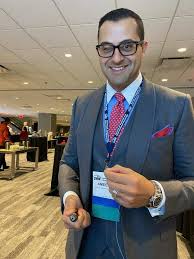
Surviving a stroke is a testament to resilience, courage, and strength in the face of adversity. While the journey of recovery may present numerous challenges, it also offers opportunities for growth, adaptation, and renewal. Dr Ameer Hassan , a renowned expert in stroke management, offers a compassionate and empowering approach to building resilience after stroke, guiding survivors toward healing and transformation. In this article, we explore Dr. Hassan’s holistic approach to post-stroke recovery and the strategies he recommends for cultivating resilience and reclaiming quality of life.
Central to Dr. Hassan’s approach to building resilience after stroke is the recognition that resilience is not a fixed trait but rather a dynamic process that can be cultivated and strengthened over time. Resilience encompasses the ability to bounce back from setbacks, adapt to change, and thrive in the face of adversity. By fostering resilience, stroke survivors can navigate the challenges of recovery with courage, determination, and hope.
One of the key components of Dr. Hassan’s approach is empowering stroke survivors to embrace a positive mindset and outlook on their recovery journey. He emphasizes the importance of reframing challenges as opportunities for growth and learning, rather than insurmountable obstacles. By cultivating a sense of optimism, gratitude, and self-efficacy, stroke survivors can harness their inner strength and resilience to overcome adversity and achieve their goals.
Moreover, Dr. Hassan advocates for fostering social support and connections as a crucial aspect of building resilience after stroke. Strong social networks provide a source of emotional support, practical assistance, and companionship, which can buffer against the negative effects of stress and enhance coping mechanisms. By nurturing relationships with family, friends, healthcare providers, and support groups, stroke survivors can feel valued, understood, and supported throughout their recovery journey.
In addition to social support, Dr Ameer Hassan emphasizes the importance of self-care and holistic well-being in promoting resilience after stroke. Physical activity, nutrition, sleep, and stress management play integral roles in optimizing health and promoting recovery. Adopting healthy lifestyle habits, such as regular exercise, balanced diet, adequate sleep, and relaxation techniques, can bolster physical and emotional resilience, enhance energy levels, and improve overall well-being.
Furthermore, Dr Ameer Hassan encourages stroke survivors to embrace a sense of purpose and meaning in their lives, even in the face of adversity. Engaging in meaningful activities, hobbies, and pursuits that align with one’s values and interests can foster a sense of fulfillment, connection, and joy. By focusing on what matters most to them and setting meaningful goals for the future, stroke survivors can cultivate a sense of purpose that sustains them through the ups and downs of recovery.
In conclusion, building resilience after stroke is a multifaceted and dynamic process that requires a holistic approach encompassing mindset, social support, self-care, and a sense of purpose. Dr. Ameer Hassan’s compassionate and empowering approach to post-stroke recovery offers survivors a roadmap for healing, growth, and transformation.